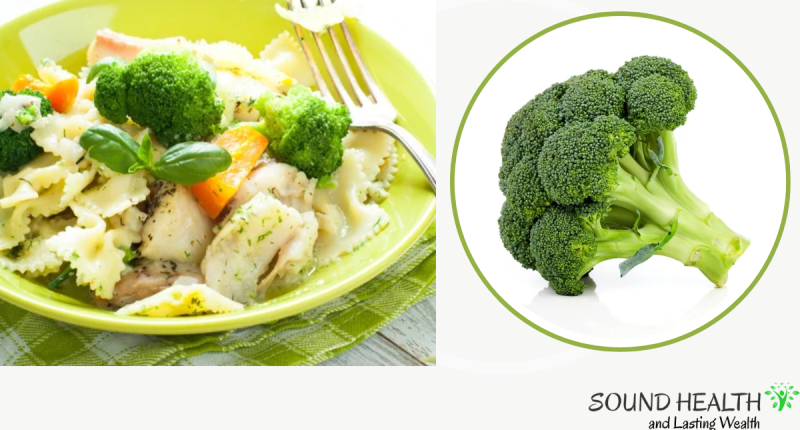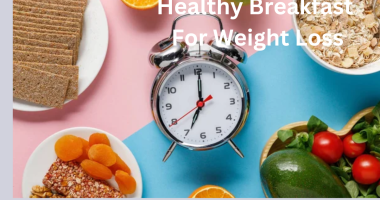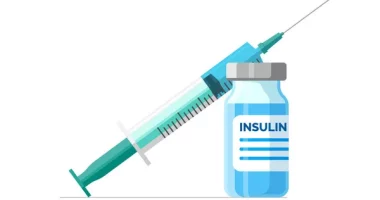Broccoli, a member of the cruciferous vegetable family, is more than just a visually appealing addition to your plate. It’s a nutritional powerhouse packed with essential vitamins, minerals, fiber, and antioxidants nutrients and boasting a range of impressive health benefits. Broccoli vegetable can be enjoyed raw, steamed, roasted, or used in various dishes, making it a delicious and easy way to boost your health. Here’s an introduction to this superfood, exploring its nutrition facts content, potential health impacts, and delicious recipe options.
Broccoli Nutrition Facts:
Sure, here is the broccoli nutritional profile Source:
| Nutrient | Amount per 1 cup cooked | Daily Value(%) |
|---|---|---|
| Calories | 55 | 3% |
| Protein | 4g | 8% |
| Carbohydrates | 11g | 4% |
| Fiber | 5g | 20% |
| Fat | 0.3g | 0% |
| Vitamin K | 100mcg | 133% |
| Vitamin C | 81mg | 89% |
| Vitamin A | 1132IU | 23% |
| Folate | 67mcg | 17% |
| Potassium | 316mg | 9% |
Broccoli Health Benefits
1. Cancer Fighter: Broccoli is rich in sulforaphane, a powerful antioxidant with the potential to inhibit the growth and development of cancer cells. Studies have linked sulforaphane intake to a reduced risk of various cancers, including colorectal, lung, and prostate cancers.
2. Bone Builder: Broccoli is a champion of bone health, packing a potent punch of vitamin K and calcium. Vitamin K plays a vital role in bone formation and mineralization, while calcium serves as the primary building block of strong, resilient bones. Regular consumption of broccoli can significantly reduce the risk of osteoporosis and fractures.
3. Cholesterol Warrior: Broccoli’s soluble fiber acts like a sponge, absorbing cholesterol from the digestive tract before it enters the bloodstream. This helps lower overall cholesterol levels, promoting cardiovascular health and reducing the risk of heart disease.
4. Digestive Champion: The fiber in broccoli not only promotes gut health by stimulating the growth of beneficial bacteria but also regulates bowel movements, preventing constipation and promoting digestive well-being. Additionally, sulforaphane may offer protection against stomach ulcers and other digestive disorders.
5. Immune System Booster: Broccoli is brimming with vitamin C, a crucial antioxidant that strengthens the immune system. Vitamin C helps combat infections and promotes faster wound healing, keeping you healthy and resilient.
6. Weight Management Ally: Being low in calories and high in fiber, broccoli is a filling and satisfying food that can aid in weight management efforts. The fiber content promotes satiety, preventing overeating and helping you maintain a healthy weight.
7. Brainpower Enhancer: Emerging research suggests that the sulforaphane in broccoli may possess cognitive-enhancing properties and potentially protect against neurodegenerative diseases such as Alzheimer’s and Parkinson’s.
8. Eye Protector: Broccoli is a rich source of vitamin A, essential for maintaining healthy vision. Vitamin A helps protect the cornea and prevents age-related macular degeneration and cataracts, ensuring clear and sharp vision.
9. Detoxification Promoter: Broccoli’s ability to boost detoxification goes beyond its glucosinolate content. It also contains glutathione, a potent antioxidant that supports the liver, the primary organ responsible for detoxification. This dual approach ensures efficient elimination of toxins and harmful substances, promoting internal cleansing and overall health.
10. Skin Savior: Broccoli’s vitamin C and antioxidants stimulate collagen production and protect the skin from free radical damage. This helps maintain a youthful glow and reduces the appearance of wrinkles and fine lines.
11. Inflammation Fighter: The antioxidants and anti-inflammatory compounds in broccoli can help reduce inflammation throughout the body, potentially offering protection against chronic diseases such as arthritis and heart disease.
12. Blood Sugar Regulator: Broccoli’s fiber content helps regulate blood sugar levels, preventing spikes and crashes that can be detrimental to health. This can be especially beneficial for individuals with diabetes or prediabetes.
13. Energy Booster: The complex carbohydrates and vitamins in broccoli provide sustained energy throughout the day, helping you avoid fatigue and stay energized for longer periods.
14. Pregnancy Powerhouse: Broccoli is loaded with nutrients essential for pregnant women and their developing babies. Folic acid, vitamin C, and calcium are just some of the vital nutrients that broccoli provides, supporting a healthy pregnancy and fetal development.
15. Versatility for Every Taste: From raw florets added to salads to roasted florets as a delicious side dish, broccoli’s versatility allows for effortless incorporation into various culinary creations. This makes it easy to enjoy its health benefits in a way that suits your individual preferences and dietary needs.
16. Gut Microbiome Guardian: Broccoli’s prebiotic compounds, specifically the fiber and sulforaphane, act as food for your beneficial gut bacteria. This diverse ecosystem of microorganisms plays a crucial role in digestion, immunity, and overall health. By nourishing these beneficial bacteria, broccoli helps maintain a balanced gut microbiome, essential for optimal well-being.
17. Mental Health Supporter: Research suggests that sulforaphane may possess neuroprotective properties, potentially mitigating the risk of neurodegenerative diseases like Alzheimer’s and Parkinson’s. Additionally, the vitamin C and B vitamins in broccoli contribute to healthy brain function and may help manage stress and anxiety.
18. Respiratory Health Defender: Broccoli’s anti-inflammatory and antioxidant properties may offer protection against respiratory problems like asthma and chronic obstructive pulmonary disease (COPD). By reducing inflammation and promoting healthy lung function, broccoli can contribute to improved respiratory health and well-being.
19. Age-Defying Ally: Broccoli’s rich antioxidant content helps combat free radical damage, one of the primary contributors to aging. This translates to potential benefits like reduced wrinkles, improved skin elasticity, and a slower aging process overall.
20. Wound Healing Accelerator: The vitamin C and K in broccoli are essential for collagen production, a critical protein involved in wound healing. By promoting collagen synthesis, broccoli can help wounds heal faster and prevent scarring.
21. Hormonal Balance Support: Broccoli contains phytoestrogens, plant-based compounds that can help regulate estrogen levels in the body. This can be particularly beneficial for women experiencing hormonal imbalances during menopause or menstruation.
22. Sleep Promoter: Broccoli is a natural source of magnesium, a mineral known for its calming and sleep-promoting properties. By aiding in relaxation and reducing stress, magnesium can contribute to better sleep quality, leaving you feeling refreshed and energized.
23. Exercise Performance Enhancer: The vitamin C and B vitamins in broccoli contribute to energy production and muscle function. This can enhance physical performance and support recovery from exercise, making it a beneficial addition to your pre-workout routine.
24. Culinary Versatility: Broccoli’s versatility extends far beyond simply steaming or boiling. Its vibrant florets can be enjoyed raw in salads, roasted for a nutty flavor, added to stir-fries and soups, or even blended into smoothies for a nutrient-rich boost. This allows for creative exploration in the kitchen and ensures you never get bored with incorporating broccoli into your meals. Source
Broccoli Recipes
Recipe 1: Roasted Broccoli with Garlic and Parmesan
Ingredients:
- 1 head of broccoli, cut into florets
- 3 cloves garlic, minced
- 2 tablespoons olive oil
- Salt and pepper to taste
- 1/4 cup grated Parmesan cheese
Instructions:
- Preheat oven to 400 degrees F (200 degrees C).
- Toss the broccoli florets with the garlic, olive oil, salt, and pepper.
- Spread the broccoli on a baking sheet and roast for 15-20 minutes, or until tender and browned.
- Sprinkle with Parmesan cheese and serve.
Recipe 2: Broccoli Soup
Ingredients:
- 1 head of broccoli, cut into florets
- 4 cups vegetable broth
- 1 onion, chopped
- 2 cloves garlic, minced
- Salt and pepper to taste
Instructions:
- In a large pot, bring the vegetable broth to a boil. Add the broccoli florets, onion, and garlic.
- Reduce heat to low and simmer for 15-20 minutes, or until the broccoli is tender.
- Using an immersion blender or regular blender, puree the soup until smooth.
- Season with salt and pepper to taste.
- Serve hot with a dollop of sour cream or yogurt.
Recipe 3: Broccoli Stir-Fry
Ingredients:
- 1 head of broccoli, cut into florets
- 1 tablespoon soy sauce
- 1 tablespoon sesame oil
- 1 teaspoon ginger, minced
- 1 clove garlic, minced
- 1 tablespoon vegetable oil
- 1 cup broccoli florets
- 1 cup cooked rice
Instructions:
- In a small bowl, whisk together the soy sauce, sesame oil, ginger, and garlic.
- Heat the vegetable oil in a large skillet or wok over medium-high heat. Add the broccoli florets and stir-fry for 3-4 minutes, or until tender-crisp.
- Add the rice and stir-fry for another minute, or until heated through.
- Pour in the soy sauce mixture and stir-fry for 1 minute more, or until the sauce is absorbed.
- Serve immediately.
Recipe 4: Broccoli and Cheese Quiche
Ingredients:
- 1 cup all-purpose flour
- 1/2 teaspoon salt
- 1/2 teaspoon black pepper
- 1/4 cup cold unsalted butter, cut into cubes
- 1/4 cup ice water
- 2 cups broccoli florets
- 1/2 cup shredded cheddar cheese
- 4 large eggs
- 1 cup milk
- 1/2 teaspoon salt
- 1/4 teaspoon black pepper
Instructions:
- Preheat oven to 375 degrees F (190 degrees C).
- In a food processor, pulse together the flour, salt, and pepper until combined.
- Add the butter and pulse until the mixture resembles coarse crumbs.
- Gradually add the ice water, 1 tablespoon at a time, until the dough just comes together.
- Turn the dough out onto a lightly floured surface and knead for a few minutes until smooth.
- Roll out the dough and fit it into a 9-inch pie plate. Trim the excess dough and crimp the edges.
- Sprinkle the broccoli florets with the cheddar cheese.
- In a large bowl, whisk together the eggs, milk, salt, and pepper. Pour the egg mixture into the crust.
- Bake for 40-45 minutes, or until the filling is set and golden brown.
- Let cool slightly before serving.
Additional Resources
- https://www.healthline.com/nutrition/foods/broccoli
- https://en.wikipedia.org/wiki/Broccoli









